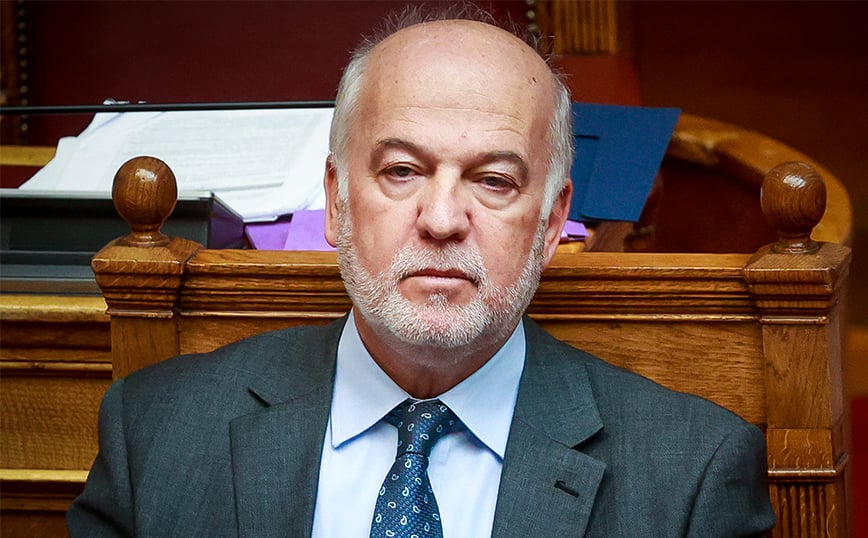Minister reminds the decisions of the European Court of Justice of Human Rights
In his post, the Minister of Justice, George Floridis, is placed for the Article 18 of the new bill about Right to access to the case fileresponding to reactions from the President of the Athens Bar Association.
The Minister recalls that this provision had been legislated in 2014 by the ND-PASOK governmenthas been in force for five years without causing problems or reactions, and It was implicitly abolished in 2019 by the SYRIZA Government.
In his post, Mr. Floridis points out that today’s reinstatement of the layout is Compliance of the country with European lawwhile adding and New guarantees to protect the partiessuch as the possibility of appealing to the Judicial Council.
At the same time, it reminds the decisions of the European Court of Justice of Human Rights, which clearly set that the right to access evidence It is not absolute and may be restricted for reasons of public interest or protection of third parties.
The Floridis post?
“” Much has seen my eyes, it brings me terror! “
This is, among other things, the posting of the President of the Athens Bar Association, which is repeatedly repeated by various criminals and non -lawyers, in particular PASOK, referring to Article 18 of the draft law of the Ministry of Justice, which is discussed by the Ministry of Justice.
It is interesting to see it:
In 2014, the ND-PASOK government, with Prime Minister Mr Samaras and Vice-President Mr. Venizelos, brought to the House to vote for the integration of the European Directive under 2012/13/EU. Articles 7 and 8 of the European Directive provided for the conditions of access to the case file, setting the following:
“Since the right to fair trial is not affected, the competent authorities, in questioning, preliminary or preliminary examination, do not allow access to portion of the material if it may be in serious risk of life or the fundamental rights of another person or if such a refusal to be fulfilled in the or seriously harm national security.
In order to provide information to the defendant in accordance with the above, a report shall be drawn up or a special mention is made in the report compiled.
The defendant or lawyer has the right to submit objections against the possible omission or refusal of the competent authority to provide the above incidence. ”
These provisions were incorporated into Article 101 of the Code of Criminal Procedure, by Article 12 of Law 4236 of 2014, as our country had obliged.
In the Legislative Committee, which prepared the integration of the European Directive, he also participated as a lawyer as a representative of the Athens Bar Association.
This provision was in place in our criminal law for five (5) years, that is, from 2014 to 2019, when it was implicitly abolished by SYRIZA with the penal code it has rushed to the House in 2019, in violation of our obligation to the European Union and the European Union.
The first question to those who today say that they “feel terror” is how they lived with this horror for five years without saying one word? (!) Perhaps the terror had been cut by Lalia, which I do not believe.
So this provision, which applies to the union of the European Directive in France, Germany, Italy, the Netherlands, Belgium, Spain, etc., is reinstated, as is the obligation of our country, with the provision of Article 18 of the Bill, which is discussed by the parliament, with the Court of Appeal, such as the Council of Parliament. which did not exist in the 2014 provision for five (5) years and which did not “cause terror”.
I repeat, if some would stop being exposed that this provision in 2014 was legislated by the ND-PASOK government and apparently voted in favor by PASOK MPs.
Regarding various people who are swollen for the so -called unacceptable restriction of human and individual rights, I would like to remind you that the Human Rights Court of Human Rights is the European Court of Human Rights (ECtHR), which by its successive decisions:
In 1997 in the Van Mechelen case against the Netherlands,
2,000 in the Rowe & Davis case by M. Brittany,
In 2017 in the Van Wesenbeeck case against Belgium,
In 2017 in the Croatian Matakovic case,
in 2017 in the Berardi case by San Marino and
in 2018 in the Paci case against Belgium),
ruled that:
“The right to disclose relevant evidence is not absolute. In criminal proceedings there may be conflicting interests, such as national security, the need to protect witnesses who are at risk of retaliation and therefore in some cases it may be necessary to hide evidence in order to safeguard fundamental rights.”
I hope, with the reading of these rulings of the European Court of Human Rights, to retreat, at least a little, the “terror” of the obviously worried human rights protectors, who have been in five years (2014-2019) when the debate was in place today. Guarantees for the parties, who did not exist in the prevailing, just as the EDDA decisions set out. “
